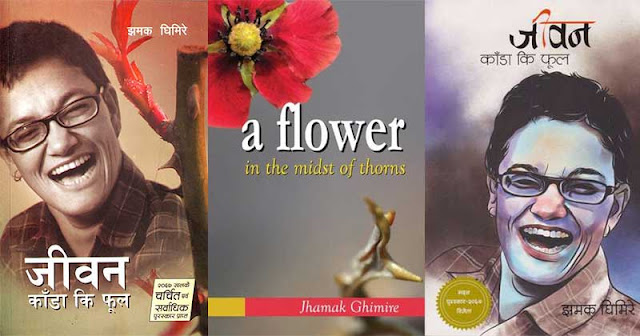PK, RELIGION AND REALITY
By BINIT GURUNG
Imagine an inhabitant of another planet left stranded in a deeply religious society on earth by accident. He is compelled to learn the ways of the world to survive and in doing so, encounters a range of competing religious beliefs and traditions that mark his newfound world. This scenario is actually portrayed in the recently released Amir Khan Starrer movie “PK” directed by Rajkumar Hirani who has a reputation for making excellent movies.
The movie raises some plausible questions on ‘religion’
which holds sway over the lives of millions of people in India. The centrality
of religion in people’s lives is not characteristic of Indian societies only.
Rather, this is common to all societies in varying extents across the world. Against
this background, let me dwell on the different facets of religion which we
often take for granted.
The good side
The functionalist analysis of religion sees religion as
contributing to the functioning of the whole social system. In other words,
religion is seen in light of its role in maintaining the social order. It fosters
shared values and beliefs among people and thereby promotes social solidarity. Religious
rituals and festivals help to integrate the society by bringing people together
in a society.
It also serves as an agent of social control by its
prescription of moral codes of conduct and taboos among others. These beliefs
have strong influence on the behavior and conduct of the people. Besides, religion
makes suffering tolerable and instills patience in its adherents as they
believe in the promise of eternal bliss in afterlife and the idea of reward and
punishment according to one’s deeds.
It explains what cannot be explained otherwise. It therefore
helps to allay frustration and tension arising from one’s failure or one’s
inability to comprehend the contradictions of life. Religion has indeed many ‘functions’
in a society as explained by the functionalists like Emile Durkheim, Brainslaw
Malinowski and Talcott Parsons.
The
The Marxian perspective of religion reveals a different
picture of religion that contrasts with what that has been outlined in the
preceding paragraph. Marxism sees religion as an illusion that somewhat lessens
the pain of oppression and exploitation of the working classes leading them to have
‘false consciousness’.
Ruling classes use religious beliefs to justify and
legitimize their power and privileges whereas the oppressed find illusive solace
in religion from the otherwise hostile world. Certain beliefs like the promise
of eternal bliss in afterlife, suffering as a test of god to be reciprocated
with reward in the next life, awaiting intervention of god in the right time and
perceiving social structure as the creation of god among others keep oppressed
people oppressed as they are dissuaded to protest against the existing social conditions.
Religion therefore nourishes social inequality.
Religion and global
middle class
After discussing the two classes at the extremes from the
Marxian perspective, middle class merits a brief discussion vis-à-vis religion.
Marxists are skeptic of middle class. Marx believed that the middle class would
ultimately relegate to the lower class as they would not be able to compete against
the upper class in the capitalist economy. However, this didn’t precisely come
true. On the contrary, middle class has increasingly expanded as a distinct
class category located in between the upper class and the lower class.
Now, the question arises whether or not religion pervades
the lives of middle class people? Different opinion surveys in Western society
have shown that middle class people do not tend to attach much importance to
religious practices. With the rise of income and accessibility to new
opportunities, there is often a remarkable shift in the religious beliefs of
people.
The middle class people value democracy and have
increasingly begun to take religion as a private affair. A survey by Pew
Research Center on the religious attitude of the global middle class in 2009
pointed out that similar effect is at play on the emerging middle class of the
developing countries.
Religion and Nepali
middle class
However, this may not hold true for every place
particularly not in the context of Nepal and elsewhere in South Asia. Mark
Liechty in his book Suitably Modern
writes “I went to Kathmandu looking for class as a ‘thing’ but every time I
thought I had captured it, it was gone.” Liechty mentions that there is no
consensus on what actually constitutes middle-class.
Middle class people, he writes, are modern in their outlook
but paradoxically place a high premium on cultural and religious matters. In
his words, they are ‘modern Nepali’. They, according to Liechty, construct and
operate in a cultural space in-between the ‘national elites’ who are very few
in numbers and the ‘urban poor’ who form the bulk of the population. In
contrast to Marxian perspective, both of these classes located at the two
opposite ends, he notes, are not as concerned about the moral codes of the
society and religious matters as opposed to the middle class.
Secularism and
secularization
Secularism is the separation of state and its
institutions from the grip of religion. Here, religion is kept apart from
government and administration. In other words, religion plays no role in
matters of public policy making and decisions. The notion of neutrality vis-à-vis
religions underlies secularism. In other words, all religions of a country are
treated equally and religious freedom is constitutionally secured. Secularism
therefore helps to protect religious minorities giving them a sense of
confidence. Forced religious conversion has no place in secularism.
On the other hand, secularization is a process where the
influence of religion in all areas of our social life is increasingly on the
decline. Decreasing participation in religious institutions and increasing
adoption of pragmatic life style and behaviors among others are signs of
secularization. In 2006, Nepal was first declared a secular country and this
has been carved in stone in the Interim Constitution of Nepal 2007 as well.
This shift from a longstanding Hindu state to a secular state may be taken as
an indicator of secularization among the Nepalese populace.
The way forward
Amartya Sen has made a valid point in his book Identity and Violence: The Illusion of
Destiny that religious fundamentalism should not be dealt with from within
the realm of religion. The logic goes like this. If Hindu fundamentalists
indulge in violence, we are not supposed to condemn it by highlighting the good
aspects of Hinduism that prohibit such acts. Rather, Sen stresses that we
should rather highlight other important considerations than religion.
Otherwise, we would just create ‘good Hindus’ and ‘bad Hindus’ and the real
problem remains unattended. Despite on and off acts of violence in the name of
religion, Nepalese polity is fortunately not torn apart in the name of
religion.
In recent times however, conservative forces across the
political spectrum have raised their heads to subvert secularism in the
country. It is to be noted that a Hindu-state or any religious state for that
matter may prove counter-productive even to those people whose religion is
patronized by the state. When our daily lives are subject to religion, whether
it be mine or yours, the order of rational decision-making will be derailed
entirely.
Secularism sits well with democracy whereas a state that
patronizes a religion is incongruent to the basic ideals of democracy.
Essentially, our faith on god need not be dependent on a particular religion.
The movie ‘PK’ is to be admired because it tries to break the conventional
attitude to religion and floats the idea that even religion must be put to
question.
Thank you
very much for reading this article. I hope you liked this article. I will be
glad if you take little time and make a comment about this article. Your
comment is highly appreciated.
About the author
Binit Gurung
is a Research Fellow at Alliance for Social Dialogue and is a graduate of BA
Humanities and Social Sciences from St. Xavier’s College, Kathmandu.
LEGAL WARNING
All rights reserved. No
articles and photos published in this blog can be reproduced without the prior
written permission of the author. Legal action will be taken immediately if any
articles or photos are reproduced without the author’s knowledge. However,
articles or photos can only be reproduced by duly mentioning the author’s name
and the blog's name (read2bhappy.blogspot.com). The author must be informed by
sending an email. All articles and the photos published in this blog are the
copyright property of LB THAPA











.png)
Comments
Post a Comment